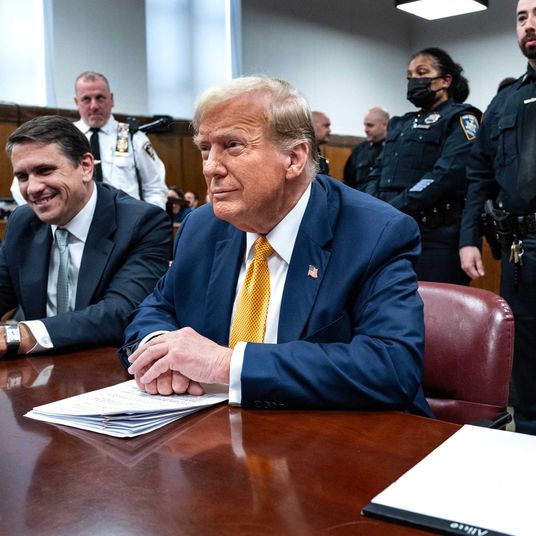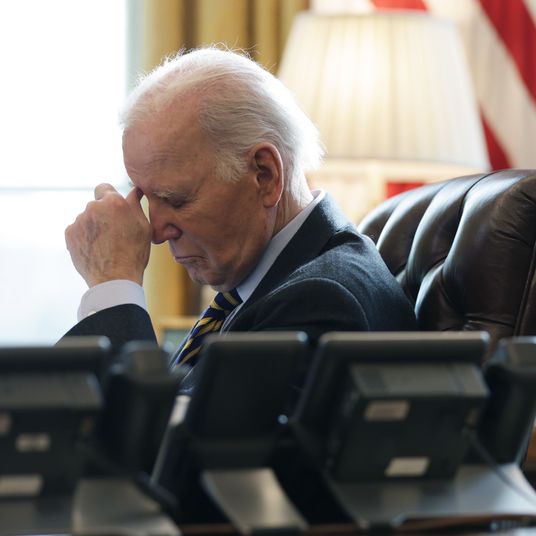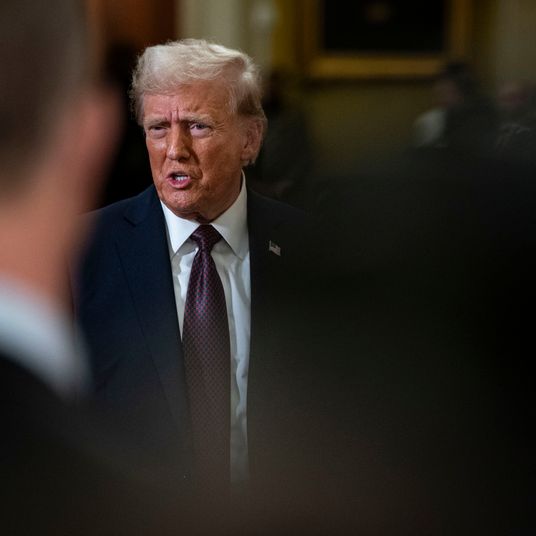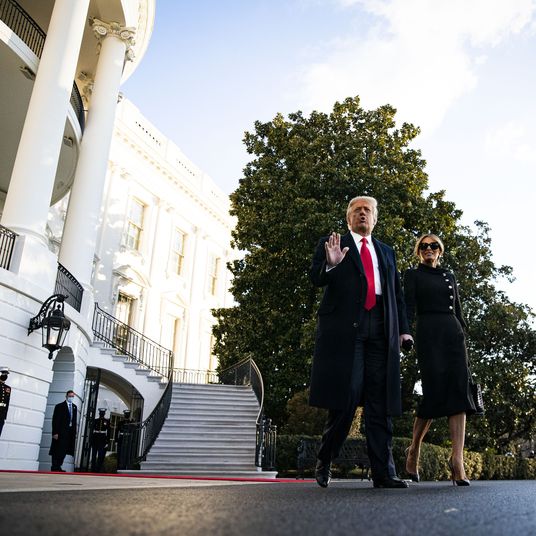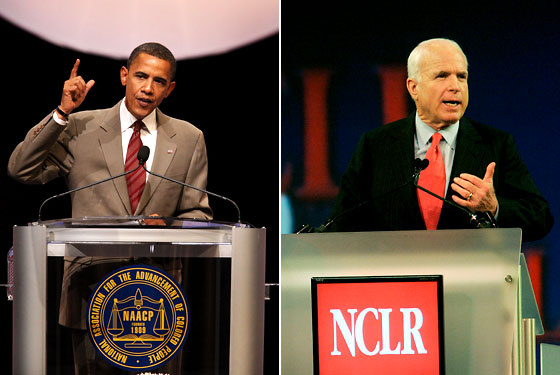
Getty Images
As Barack Obama seeks to clarify where he stands on withdrawing troops from a calmer Iraq, he faces some unfavorable numbers from a new Washington Post–ABC News poll. Voters are split down the middle over the candidates’ plans for Iraq and on whom they trust to handle the war, and by a wide margin see John McCain as a stronger commander-in-chief. Throughout the campaign the war has receded into the background when other, more important issues — surrogate gaffes, magazine covers — have demanded our attention, but it returns to the forefront time after time. The latest round has Obama squirming more than McCain, but could Iraq be a deal breaker for either candidate?
• Jonathan Weisman and Jon Cohen conclude that “months of Democratic attacks on McCain’s Iraq position have not dented voters’ basic trust in his ability to lead the country’s armed forces.” [WP]
• Chuck Todd and friends think there’s a lot of good news for McCain in the poll, but the bad news for him is that the economy is a greater concern for voters than Iraq, and that people believe Afghanistan is more important in winning the war on terror than Iraq. Still, as the news continues to benefit McCain, “Obama needs to be careful that he isn’t looking too much like an average politician who will say whatever he has to, to get elected.” [First Read/MSNBC]
• Marc Ambinder finds it ironic that Obama was propelled to the Democratic nomination by his early opposition to the war in Iraq, and yet with at this point in the election, “the man who is most identified with The Surge — John McCain — is just as trusted by Americans to figure out what to do about it.” Ambinder’s “best guess” for McCain’s strong Iraq numbers “is that partisan differences are reasserting themselves — Republicans and Republican-leaning independents are coalescing around their nominee and his position.” [Atlantic]
• Michael Cohen thinks this isn’t actually all that bad for Obama, since on basically every other issue he has the advantage. If he stays even with McCain on Iraq, “on Election Day, Michelle and Barack can start measuring the drapes in the Oval Office.” [Democracy Arsenal]
• Matthew Yglesias thinks “it’ll be deadly for progressives to let that kind of framing” in the Post poll stand. The wording makes it seems like “McCain is hewing to some kind of agnostic middle ground about troop departures, letting the schedule be dictated by events,” when in reality his strategy is “geared toward making a permanent presence possible,” a goal which is itself presently a source of instability in Iraq. [Atlantic]
• Jennifer Rubin writes that any day spent talking about the surge “is not an optimal day for team Obama” because it both “emphasize[s] the candidate’s major error on national security” and “distracts him from his domestic message.” [Contentions/Commentary]
• Rich Lowry believes that in ignoring the progress on the ground and revising his past dubiousness about the surge, Obama is either “dangerously sincere, or he’s a cynical operator playing duplicitous politics with matters of war and peace.” [National Review]
• The New Republic editors contend that Obama isn’t flip-flopping on Iraq. In reality, “the fine print of his pronouncements and policy papers has always contained nuances and caveats, reasons why he might slow down a pullout and keep troops in Iraq over a longer horizon.” Furthermore, it would be “absurd” to reward a candidate for sticking the precise policy stances they staked out two years ago. [New Republic]
• Rick Klein and friends would like to remind everyone how tough it is for any politician “who’s come into contact with the chaotic politics of” Iraq to “get it right.” Obama can still turn his Middle East trip “into a pure plus … [b]ut the early signs aren’t encouraging.” [Note/ABC News] —Dan Amira
For a complete and regularly updated guide to presidential candidates Barack Obama and John McCain — from First Love to Most Embarrassing Gaffe — read the 2008 Electopedia.





